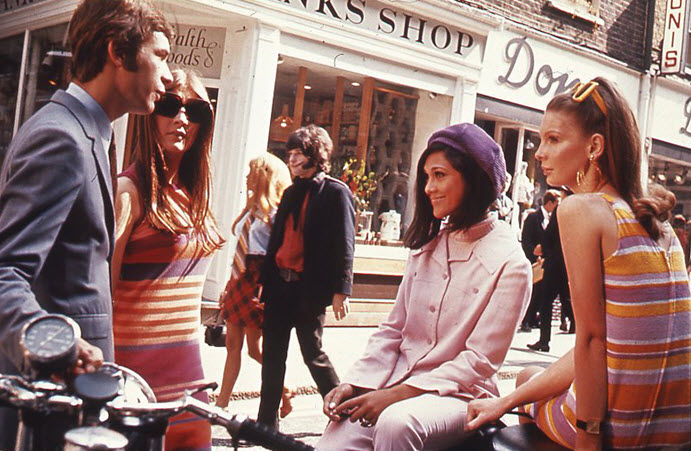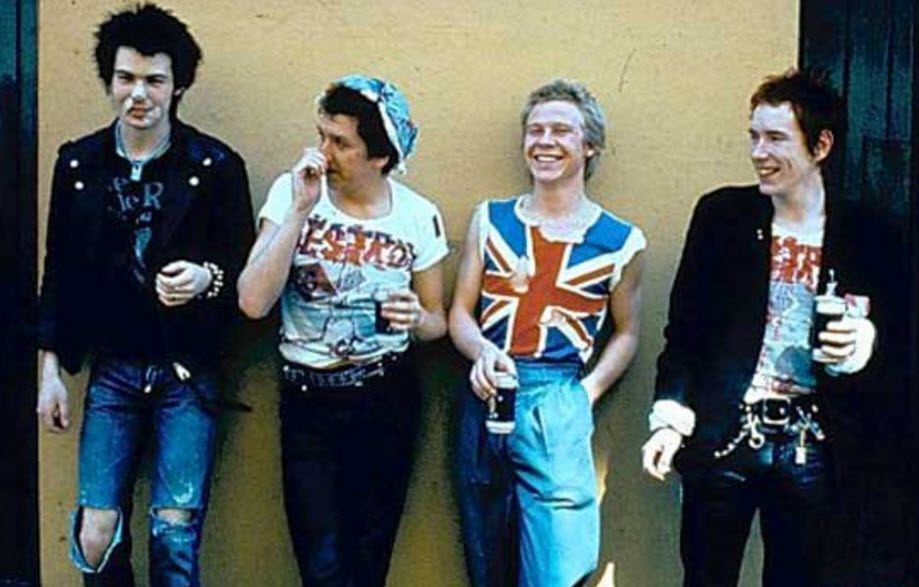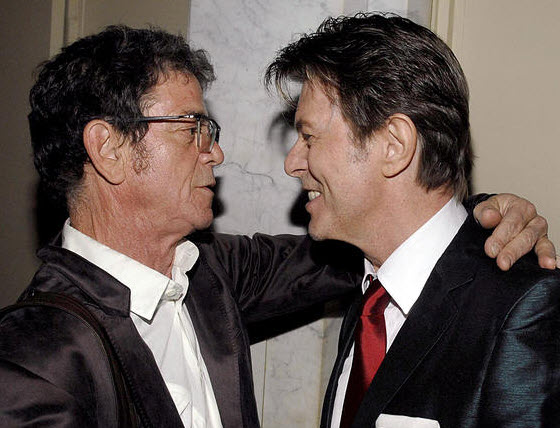924
Lectures Watched
Since January 1, 2014
Since January 1, 2014
- A History of the World since 1300 (68)
- History of Rock, 1970-Present (50)
- A Brief History of Humankind (48)
- Chinese Thought: Ancient Wisdom Meets Modern Science (35)
- The Modern World: Global History since 1760 (35)
- The Bible's Prehistory, Purpose, and Political Future (28)
- Introduction aux éthiques philosophiques (27)
- Jesus in Scripture and Tradition (25)
- Roman Architecture (25)
- Sexing the Canvas: Art and Gender (23)
- Descubriendo la pintura europea de 1400 a 1800 (22)
- Introduction aux droits de l'homme (19)
- Buddhism and Modern Psychology (18)
- Calvin: Histoire et réception d'une Réforme (17)
- The Ancient Greeks (16)
- À la découverte du théâtre classique français (15)
- The French Revolution (15)
- Letters of the Apostle Paul (14)
- Key Constitutional Concepts and Supreme Court Cases (14)
- Christianisme et philosophie dans l'Antiquité (14)
- Egiptología (12)
- Western Music History through Performance (10)
- The Rise of Superheroes and Their Impact On Pop Culture (9)
- The Great War and Modern Philosophy (9)
- Alexander the Great (9)
- Greek and Roman Mythology (9)
- Human Evolution: Past and Future (9)
- Phenomenology and the Conscious Mind (9)
- Masterpieces of World Literature (8)
- Villes africaines: la planification urbaine (8)
- Greeks at War: Homer at Troy (7)
- Pensamiento Científico (7)
- MongoDB for Node.js Developers (7)
- Fundamentos de la escritura en español (7)
- Introduction to Psychology (7)
- Programming Mobile Applications for Android (7)
- The Rooseveltian Century (6)
- Karl der Große - Pater Europae (6)
- Fake News, Facts, and Alternative Facts (6)
- Reason and Persuasion Through Plato's Dialogues (6)
- The Emergence of the Modern Middle East (6)
- A Beginner's Guide to Irrational Behavior (6)
- Lingua e cultura italiana: avanzata (6)
- L'avenir de la décision : connaître et agir en complexité (5)
- Understanding Einstein: The Special Theory of Relativity (5)
- Dinosaur Paleobiology (5)
- Exploring Beethoven's Piano Sonatas (5)
- War for the Greater Middle East (4)
- Emergence of Life (4)
- Introduction to Public Speaking (4)
- The Kennedy Half Century (4)
- Problèmes métaphysiques à l'épreuve de la politique, 1943-1968 (4)
- Designing Cities (4)
- Western Civilization: Ancient and Medieval Europe (3)
- Paleontology: Early Vertebrate Evolution (3)
- Orientierung Geschichte (3)
- Moons of Our Solar System (3)
- Introduction à la philosophie de Friedrich Nietzsche (3)
- Devenir entrepreneur du changement (3)
- La Commedia di Dante (3)
- History of Rock and Roll, Part One (3)
- Formation of the Universe, Solar System, Earth and Life (3)
- Initiation à la programmation en Java (3)
- La visione del mondo della Relatività e della Meccanica Quantistica (3)
- The Music of the Beatles (3)
- Analyzing the Universe (3)
- Découvrir l'anthropologie (3)
- Postwar Abstract Painting (3)
- The Science of Religion (2)
- La Philanthropie : Comprendre et Agir (2)
- Highlights of Modern Astronomy (2)
- Materials Science: 10 Things Every Engineer Should Know (2)
- The Changing Landscape of Ancient Rome (2)
- Lingua e letteratura in italiano (2)
- Gestion des aires protégées en Afrique (2)
- Géopolitique de l'Europe (2)
- Introduction à la programmation en C++ (2)
- Découvrir la science politique (2)
- Our Earth: Its Climate, History, and Processes (2)
- The European Discovery of China (2)
- Understanding Russians: Contexts of Intercultural Communication (2)
- Philosophy and the Sciences (2)
- Søren Kierkegaard: Subjectivity, Irony and the Crisis of Modernity (2)
- The Fall and Rise of Jerusalem (2)
- The Science of Gastronomy (2)
- Galaxies and Cosmology (2)
- Introduction to Classical Music (2)
- Art History for Artists, Animators and Gamers (2)
- L'art des structures 1 : Câbles et arcs (2)
- Russian History: from Lenin to Putin (2)
- The World of Wine (1)
- Wine Tasting: Sensory Techniques for Wine Analysis (1)
- William Wordsworth: Poetry, People and Place (1)
- The Talmud: A Methodological Introduction (1)
- Switzerland in Europe (1)
- The World of the String Quartet (1)
- Igor Stravinsky’s The Rite of Spring (1)
- El Mediterráneo del Renacimiento a la Ilustración (1)
- Science of Exercise (1)
- Социокультурные аспекты социальной робототехники (1)
- Russian History: from Lenin to Putin (1)
- The Rise of China (1)
- The Renaissance and Baroque City (1)
- Visualizing Postwar Tokyo (1)
- In the Night Sky: Orion (1)
- Oriental Beliefs: Between Reason and Traditions (1)
- The Biology of Music (1)
- Mountains 101 (1)
- Moral Foundations of Politics (1)
- Mobilité et urbanisme (1)
- Introduction to Mathematical Thinking (1)
- Making Sense of News (1)
- Magic in the Middle Ages (1)
- Introduction to Italian Opera (1)
- Intellectual Humility (1)
- The Computing Technology Inside Your Smartphone (1)
- Human Origins (1)
- Miracles of Human Language (1)
- From Goddard to Apollo: The History of Rockets (1)
- Hans Christian Andersen’s Fairy Tales (1)
- Handel’s Messiah and Baroque Oratorio (1)
- Theater and Globalization (1)
- Gestion et Politique de l'eau (1)
- Une introduction à la géographicité (1)
- Frontières en tous genres (1)
- Créer et développer une startup technologique (1)
- Découvrir le marketing (1)
- Escribir para Convencer (1)
- Anthropology of Current World Issues (1)
- Poetry in America: Whitman (1)
- Introducción a la genética y la evolución (1)
- Shakespeare: On the Page and in Performance (1)
- The Civil War and Reconstruction (1)
- Dinosaur Ecosystems (1)
- Développement durable (1)
- Vital Signs: Understanding What the Body Is Telling Us (1)
- Imagining Other Earths (1)
- Learning How to Learn (1)
- Miracles of Human Language: An Introduction to Linguistics (1)
- Web Intelligence and Big Data (1)
- Andy Warhol (1)
- Understanding the Brain: The Neurobiology of Everyday Life (1)
- Practicing Tolerance in a Religious Society (1)
- Subsistence Marketplaces (1)
- Physique générale - mécanique (1)
- Exercise Physiology: Understanding the Athlete Within (1)
- Introduction to Mathematical Philosophy (1)
- What Managers Can Learn from Great Philosophers (1)
- A la recherche du Grand Paris (1)
- The New Nordic Diet (1)
- A New History for a New China, 1700-2000 (1)
- The Magna Carta and its Legacy (1)
- The Age of Jefferson (1)
- History and Future of Higher Education (1)
- Éléments de Géomatique (1)
- 21st Century American Foreign Policy (1)
- The Law of the European Union (1)
- Design: Creation of Artifacts in Society (1)
- Introduction to Data Science (1)
- Configuring the World (1)
- From the Big Bang to Dark Energy (1)
- Animal Behaviour (1)
- Programming Mobile Services for Android Handheld Systems (1)
- The American South: Its Stories, Music, and Art (1)
- Care of Elders with Alzheimer's Disease (1)
- Contagious: How Things Catch On (1)
- Constitutional Law - The Structure of Government (1)
- Narratives of Nonviolence in the American Civil Rights Movement (1)
- Christianity: From Persecuted Faith to Global Religion (200-1650) (1)
- Age of Cathedrals (1)
- Controversies of British Imperialism (1)
- Big History: From the Big Bang until Today (1)
- Bemerkenswerte Menschen (1)
- The Art of Poetry (1)
- Superpowers of the Ancient World: the Near East (1)
- America Through Foreign Eyes (1)
- Advertising and Society (1)
Hundreds of free, self-paced university courses available:
my recommendations here
my recommendations here
Peruse my collection of 275
influential people of the past.
influential people of the past.
View My Class Notes via:
Receive My Class Notes via E-Mail:
Contact Me via E-Mail:
edward [at] tanguay.info
Notes on video lecture:
1974-77: Punk in the UK
Notes taken by Edward Tanguay on January 18, 2016 (go to class or lectures)
Choose from these words to fill the blanks below:
London, Shelley, outrageous, McLaren, Queen, Strummer, Virgin, drugs, popular, despair, Bullocks, eye, move, Ramones, woman, biker, economically, political, scandalous, financial, punk, Styrene, Clash, middle, bother, Wave, fetish, McLaren, Dolls, shop, EMI, authority
•
1974-77: punk in the UK
•
starts with one guy: Malcolm
•
background
•
the UK in the 70s
•
troubling economy
•
the US had the same problems
•
but most class kids in the US had enough
•
but in the UK a feeling of despair that they would never be able to out of where they were
•
a sense of why , no hope
•
punk music is often associated with a cultural expression of this
•
in the US, punk was not so much focused as in the UK
•
Malcolm (1946-2010)
•
a haberdasher
•
owned his own , managed it on the King's Row
•
a poke-a-stick-in-your- kind of guy
•
his store: Let It Rock
•
later changed its name to: "Too Fast To Live, Too Young To Die"
•
sold jackets, leather-ware
•
sold these next to stores that had the elegant men's wear
•
wanted to make a bigger splash in the world
•
he saw the New York on television in England
•
supplied the red letter outfits they wore
•
1974 they were on the verge of breaking up
•
some in group addicted to
•
others in group addicted to alcohol
•
and they couldn't get along with each other
•
group broke up
•
too late for Malcom McLaren to get involved
•
renamed his shop "SEX"
•
sold not only leather clothing but wear
•
a further stick in the eye of the elegant shops near him
•
puts together a band called the Sex Pistols
•
just the name of the group is an act
•
the Sex Pistols become famous for their and notorious punk behavior
•
absolute disregard of
•
became the ultimate bad boys of popular music
•
Malcom McLaren gets an advance from
•
Sex Pistols do something outrageous
•
EMI says you can keep the advance, we don't want you
•
signs with A&M Records
•
same thing happens, keeps the advance
•
finally puts the album out with Records, after getting a third advance
•
1977: Never Mind the , Here's the Sex Pistols
•
goes to #1 in the UK
•
but only #106 in the US
•
largely unknown in 1977
•
played on a barge on the Thames while the was being celebrated, got arrested, which was their intention
•
1976: Anarchy in the UK
•
1977: God Save the Queen
•
had a relatively short career
•
but everywhere they went in the UK, it seems like 4 or 5 bands sprung up from that performance
•
but had a very lasting and foundational effect on establishing
•
The
•
Joe
•
as the Sex Pistols were nihilists, the Clash were protesters
•
1977 The Clash
•
"White Riot"
•
in the USA, we didn't hear much about the Clash until 1980
•
1980 Calling
•
#27 in US charts
•
"Train in Vain (Stand by Me)"
•
by this time, the punk bad boy attitude had gone underground again
•
so by this time, the Clash were thought of more as a New group
•
The Buzzcocks
•
Pete
•
1978 Another Music in a Different Kitchen
•
The Jam
•
Paul Weller
•
looking back to Mod culture
•
1977 This is the Modern World
•
1978 All Mode Cons
•
emergence of women
•
Siouxsie and the Banshees
•
Happy House
•
The X-Ray Spex
•
Poly
•
The Slits
•
all punk group
•
Sex Pistols were influenced by punk in New York in the early 70s
•
yet punk was almost unknown then in the U.S.
•
but Malcolm McLaren had observed it on trips to New York
•
the Clash said they learned to play guitar playing along to the records
•
then punk gets big in the UK, and gets exported and in the U.S. as something new, although it had been going on in New York since the early 70s
•
but when punk his the U.S., it didn't stay punk for very long, but got transformed into something called New Wave
Ideas and Concepts:
Creative music video of the day via tonight's History of Rock and Roll class: "After spending the 1970s putting together the Sex Pistols who became famous for their scandalous and notorious behavior, spawning punk bands across the UK, Malcom McLaren went on in the 1980s to release Duck Rock, an album that mixed up influences from Africa and the Americas, including hip hop, the album helping to bring hip hop to a wider audience. One of the singles from the album "Double Dutch" became a top-10 hit in the UK. The song concerns the skipping game of the same name, with McLaren's narration mentioning several New York double Dutch troupes by name, notably the Ebonettes, whose name is also used as a chant in the chorus."
From the know-your-punk department, via tonight's History of Rock and Roll class: "While the Sex Pistols were nihilists, the Clash were political protesters. In 1977, Joe Strummer and The Clash came out with White Riot, which was definitely punk, but by the time they were known in the States with their 1980 album London Calling, the punk bad boy attitude had gone back underground, and the Clash, along with groups such as the Talking Heads, were now seen as New Wave bands."
From the hitherto unknown subculture department, via tonight's History of Rock and Roll class: "Mod is a subculture that began in 1960s Britain and spread, in varying degrees, to other countries. Focused on music and fashion, the subculture had its roots in a small group of London-based stylish young men and women in the late 1950s who were termed modernists because they listened to modern jazz. Significant elements of the mod subculture included fashion, e.g. often tailor-made suits, music including soul, ska (Jamaican precursor to rocksteady and reggae), Rhythm and Blues, and motor scooters, usually Lambretta or Vespa. The original mod scene was associated with amphetamine-fuelled all-night dancing at clubs. London became synonymous with fashion, music, and pop culture in these years, a period often referred to as Swinging London. In turn, mod influence spread to the United States and around the world."
Somehow missed this group in my youth, nice energy, new wave, punk or whatever from 1978, via tonight's History of Rock and Roll Class: "During their first incarnation (1976–79), X-Ray Spex were deliberate underachievers and only managed to release five singles and one album. Nevertheless, their first single, 'Oh Bondage Up Yours!', is now acknowledged as a classic punk rock single. One of their distinctive musical elements was Poly Styrene's voice, which has been variously described as effervescently discordant and powerful enough to drill holes through sheet metal."
1970s US/UK musical genre ping pong, via tonight's History of Rock and Roll class: "The Sex Pistols, who got going in the UK in 1975, had been influenced by the punk scene in New York since the early 70s, a time when punk was almost completely unknown in U.S. culture. It was Malcolm McLaren on his trips to New York who had discovered the punk scene there and brought it back to the UK to get bands like the Sex Pistols started. The Clash even once said that they learned to play guitar playing along to the records from The Ramones. But after the Sex Pistols and other similar bands started misbehaving themselves in the UK to a degree that got punk music popular there, it then got exported to the U.S. where it was taken up as something new, although it had been going on in New York since the early 70s. However, when punk finally arrived in the U.S., it didn't stay punk for very long, but got transformed into something called New Wave."
Serendipitous photo found during tonight's History of Rock and Roll class: "Bowie was a great Velvet Underground fan and wrote the song Queen Bitch in tribute to the band and Lou Reed. Bowie once said that his Ziggy Stardust character was a melding of the persona of Iggy Pop with the music of Lou Reed, producing the ultimate pop idol."